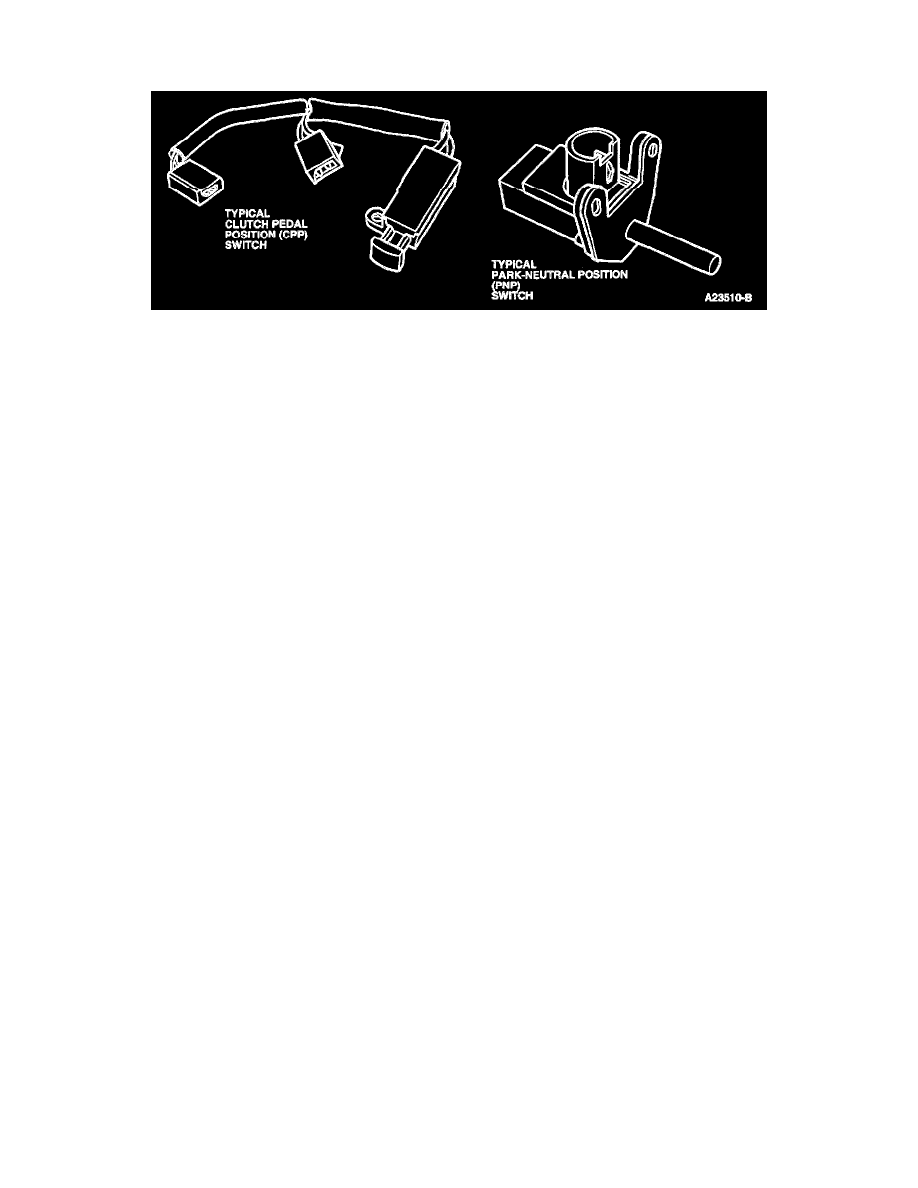Explorer 4WD V8-4.6L VIN W (2002)

Clutch Switch: Description and Operation
Clutch Pedal Position Switch
Typical Clutch Pedal Position (CPP)/Park-Neutral Position (PNP) Switches
The Clutch Pedal Position (CPP) switch (Figure 24) is an input to the PCM indicating the clutch pedal position and, in some manual transmission
applications, both the clutch pedal engagement position and the gear shift position. The PCM provides a 5-volt reference (VREF) signal to the CPP
switch and/or a Park/Neutral Position (PNP) switch (on the CPP signal line). If the CPP switch (either or both CPP and PNP switches are closed) is
closed, indicating the clutch pedal is engaged and the shift lever is in the NEUTRAL position, the output voltage (5 volts) from the PCM is grounded
through the signal return line to the PCM, and there is 1 volt or less. One volt or less indicates there is a reduced load on the engine. If the CPP switch
(or PNP switch on vehicle or both CPP and PNP switches open on the vehicle) is open, meaning the clutch pedal is disengaged (all systems) and the
shift lever is not in NEUTRAL position (PNP switch systems), the input on the CPP signal to the PCM will be approximately 5 volts. Then, the 5-volt
signal input at the PCM will indicate a load on the engine. The PCM uses the load information in mass air flow and fuel calculations.
